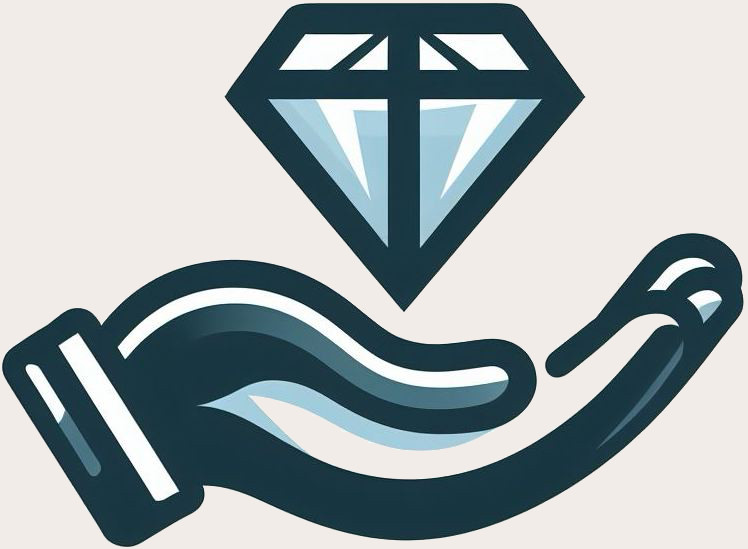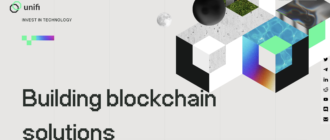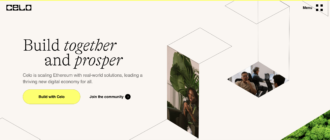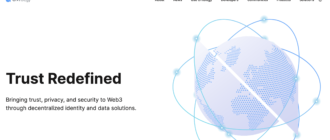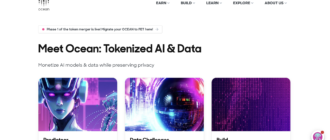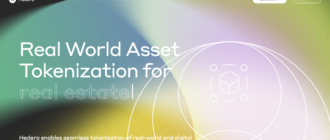MakerDAO is a blockchain-based project that aims to redefine venture capital for the masses, focusing particularly on decentralization and accessibility. It serves as a platform to foster scalable startups and reduce investor risks while providing a structured environment for decentralized autonomous organizations (DAOs).
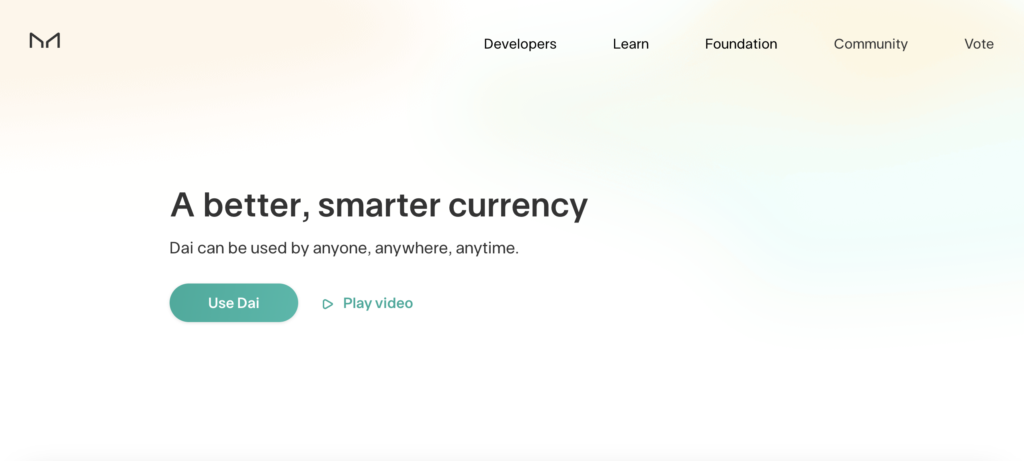
History of the Project
Founded in 2018, Maker has quickly become a notable name in the crypto space. The project was designed to democratize venture capital funding, traditionally reserved for affluent individuals and entities. The founding team, led by Christoph Zaknun, envisioned a system where smaller investors could safely participate in high-growth potential startups through decentralized mechanisms. Key milestones include the development of various funding frameworks such as Strong Holder Offerings (SHOs), which aim to ensure that only committed holders can participate, reducing the speculative nature of the investments.
What is Maker DAO?
Maker creates growth technologies and funding frameworks for startups, while simultaneously reducing risks for investors. The platform utilizes DAOs to allow community governance and decision-making, addressing a crucial aspect of participative investment on blockchain. Essentially, it functions as a bridge connecting early-stage projects with the community through an accessible and structured environment. This enables regular individuals to engage in venture capital through a more equitable and decentralized approach.
How Maker Works?
Maker leverages a suite of sophisticated technologies designed to optimize the venture creation and funding landscape. Unlike traditional venture capital platforms, Maker integrates blockchain technology, smart contract protocols, and unique operational algorithms to streamline investor and startup interactions. Here’s a breakdown of the key technologies and their distinct roles within the Maker DAO ecosystem:
Blockchain Infrastructure
The core of MakerDAO runs on the Ethereum blockchain, known for its robust security and widespread adoption. Ethereum’s flexibility allows Maker to deploy complex smart contracts that govern transactions, stakeholding, and project interactions seamlessly. Unlike many blockchain projects that opt for bespoke blockchain solutions, Maker harnesses the established Ethereum network, benefiting from its constant upgrades and large developer community.
Smart Contracts
Smart contracts are crucial to Maker’s operation. They automate the execution of agreements and ensure that all transactions within the Maker DAO ecosystem are transparent and immutable. These contracts handle various functions from staking and governance to participation in funding rounds, eliminating the need for intermediary oversight and reducing administrative overhead.
Consensus Mechanism
While Maker is built on the Ethereum blockchain, it does not use a unique consensus algorithm like Proof of Work (PoW) or Proof of Stake (PoS) itself; instead, it relies on Ethereum’s consensus mechanism. As of Ethereum’s transition to PoS, MakerDAO benefits from this change through enhanced transaction speed and reduced costs, while maintaining alignment with Ethereum’s security and decentralization features.
Unique Operational Algorithms
MakerDAO differentiates itself with several proprietary algorithms:
- Staking Protocols: Maker’s staking protocol is designed to prioritize long-term holders of the DAO token, offering them greater opportunities in venture participation. This system rewards committed community members and discourages speculative trading.
- Dynamic Coin Offering (DYCO): A notable innovation unique to Maker DAO, DYCO allows funds raised in initial offerings to be partially refundable. This mechanism is linked to project milestones, and if these are not met, investors can claim back a portion of their investment. This greatly reduces the investment risk and increases accountability for project teams.
Technical Details and Explanations
The technological implementation of these features on the Ethereum network involves deploying multifunctional smart contracts that interact with each other to perform complex tasks. For example, the staking protocol uses smart contracts to lock DAO tokens, calculate rewards based on token age and amount, and distribute these rewards automatically. Similarly, the DYCO framework uses smart contracts to track project milestones, manage fund escrows, and process refunds if necessary.
Distinctive Features
What sets Maker apart from other platforms is its integration of risk-reduction financial instruments like DYCO, robust community-governed funding procedures, and the leveraging of Ethereum’s latest technological advancements. These elements create a fertile environment for both startups seeking funding and investors looking for secure, potentially high-return opportunities in the emerging venture space.
Through these technologies, Maker not only enhances the functionality and efficiency of venture funding but also pioneers new standards for investor security and project accountability in the blockchain sector.
What is the Stablecoin DAI and Its Connection to Maker?
DAI is a decentralized cryptocurrency known as a stablecoin, designed to maintain a stable value relative to the US dollar. It achieves this through smart contracts on the Ethereum blockchain, which manage the issuance and overall mechanics of the stablecoin. DAI is unique in that it is completely backed by collateral in the form of other cryptocurrencies rather than fiat currency or physical assets.
The Role of Maker in DAI’s Ecosystem
The connection between DAI and Maker is foundational. Maker is a decentralized autonomous organization (DAO) and the smart contract platform that backs and stabilizes DAI through a dynamic system of Collateralized Debt Positions (CDPs), autonomous feedback mechanisms, and appropriately incentivized external actors.
- Collateralized Debt Positions (CDPs): These are smart contracts on the Maker system in which users deposit collateral assets (such as ETH) to mint new DAI. The collateral remains locked in the CDP until the borrowed DAI is returned.
- Governance: MakerDAO, the governing body of the Maker protocol, manages the operation and rules of the DAI stablecoin. This governance is conducted by MKR token holders, who vote on critical decisions affecting the ecosystem, such as collateral types, risk parameters, and other system configurations that influence DAI’s stability.
- Stability Mechanism: The value of DAI is kept in check through a dynamic system of Stability Fees (interest rates) charged for generating DAI and through the Dai Savings Rate, which offers a return on holding DAI. These mechanisms adjust based on market conditions and governance decisions to maintain DAI’s peg to the US dollar.
Stability and Trust
The stability of DAI comes from overcollateralization and careful governance. Each DAI is backed by a higher value of collateral, which means even significant market fluctuations won’t immediately threaten the stablecoin’s value. This system provides a high degree of security compared to other stablecoins, especially those backed directly by fiat in bank accounts, which may face different kinds of regulatory and counterparty risks.
Tokenomics of Maker DAO
The MKR token is a utility token central to the MakerDAO ecosystem, enhancing the platform’s functionality through governance, staking, and access to services. Unlike a coin, which typically refers to native blockchain assets used primarily as currency, the MKR token is built on the Ethereum blockchain and fulfills specific roles within its ecosystem. Here’s an in-depth look at its tokenomics, emission model, and market behavior.
Utility and Functions
The MKR token provides several critical utilities within the Maker framework:
- Governance: Token holders have the right to vote on major project decisions, including which startups to support and the strategic direction of the platform.
- Staking: Holders can stake their tokens to participate in venture offerings on the platform, such as Dynamic Coin Offerings (DYCOs) and Strong Holder Offerings (SHOs). Staking not only facilitates participation but also encourages holding behaviors which stabilize the token’s value.
- Access to Services: The token acts as a key to unlock premium features within the Maker DAO ecosystem, such as exclusive investment opportunities and higher staking rewards.
Emission Model
MakerDAO employs a fixed supply model with a total cap of 312 million tokens, designed to prevent inflation and maintain token value. The tokens were initially distributed through a series of public and private sales, with a significant portion allocated to community incentives and ecosystem growth. This limited supply model aims to foster scarcity as demand increases with the expansion of Maker’s services and user base.
Market Behavior and Pricing
The price of the MKR token is subject to market conditions and has experienced volatility typical of cryptocurrency assets. Factors influencing its price include overall market trends, investor sentiment, and developments within the Maker DAO ecosystem, such as successful project launches or significant updates to the platform.
Allocation and Circulation
The allocation of MKR tokens is strategically designed to support long-term development and community engagement:
- Ecosystem Growth: A substantial part of the token supply is reserved for marketing, partnerships, and other activities that drive ecosystem growth.
- Team and Advisors: Tokens allocated to the team and advisors come with vesting periods, aligning team incentives with the long-term success of the platform.
- Community Incentives: A significant portion is designated for rewards and incentives that engage the community and encourage active participation and governance.
The Maker’s tokenomics reflect a well-thought-out strategy to balance supply and demand, secure the platform’s operability, and incentivize user engagement. By focusing on utility, emission control, and strategic allocation, Maker ensures the MKR token supports both the platform’s functionality and its economic stability. As Maker DAO continues to evolve, the interplay of these factors will be crucial in shaping its market position and the value of its token.
Where to Buy MKR Tokens?
MKR tokens can be purchased on several leading cryptocurrency exchanges, providing ample liquidity and trading options for potential buyers. Here’s a list of platforms where MKR tokens are available:
- Binance: As one of the largest and most popular cryptocurrency exchanges globally, Binance offers robust trading capabilities, high liquidity, and a user-friendly experience for purchasing MKR tokens.
- HTX (formerly Huobi): Known for its wide range of cryptocurrencies and strong presence in Asian markets, HTX provides a reliable platform for buying MKR tokens.
- MEXC: MEXC is appreciated for its comprehensive selection of trading pairs and competitive fees, making it a suitable option for acquiring MKR tokens.
- Bybit: Bybit, originally a derivatives platform, has expanded to spot trading and offers MKR tokens among its diverse cryptocurrency offerings.
- KuCoin: With a focus on a diverse range of tokens and innovative trading solutions, KuCoin is a popular choice for traders looking to buy MKR tokens.
- Bitfinex: Known for serving more advanced traders, Bitfinex offers MKR tokens and provides deep liquidity pools and a range of trading features.
These exchanges are selected for their reliability, security measures, and ease of use, catering to both novice and experienced traders.
Where to Store MKR Tokens?
For storing MKR tokens, it is crucial to choose wallets that offer security, user control, and flexibility. Here are some recommended options:
- Metamask: A widely used Ethereum-compatible browser wallet, Metamask allows users to interact directly with decentralized applications (dApps) on the Ethereum network, making it ideal for managing MKR tokens involved in Maker DAO activities.
- Ledger Nano X/S: These hardware wallets provide an extra layer of security by storing tokens offline. They support Ethereum and ERC-20 tokens like MKR, making them a secure choice for long-term holders.
- Trust Wallet: This mobile wallet supports a wide range of cryptocurrencies including ERC-20 tokens. Trust Wallet offers an intuitive interface and robust security features for MKR token holders.
- Trezor: Another reputable hardware wallet, Trezor provides robust offline storage forMKR tokens, with the added benefit of a secure environment for performing transactions.
- Argent: Focused on Ethereum-based assets, Argent offers a unique feature set with capabilities like setting transaction limits and wallet recovery without a seed phrase, enhancing the security and usability for MKR token holders.
Each of these wallets provides different features catering to various needs, from high security with hardware wallets to flexibility and direct dApp interaction with software wallets like Metamask and Argent. Users should select a wallet based on their specific requirements such as security, ease of access, and interaction with decentralized applications.
Future Prospects and Development Forecast
The growth trajectory of Maker DAO is influenced by several key factors that position it uniquely within the venture capital and crypto ecosystems. The project’s scalability, innovative funding mechanisms, and strong community support underpin its potential for sustained growth.
Growth Drivers
- Innovative Funding Solutions: Maker’s introduction of models like SHO (Strong Holder Offering) and DYCO (Dynamic Coin Offering) address significant gaps in traditional and crypto venture capital, such as investor protection and access to quality projects.
- Regulatory Compliance: The platform’s commitment to aligning with regulatory frameworks enhances its attractiveness to a broader range of investors and can facilitate more stable expansion.
- Community and Ecosystem Development: Continuous investment in community engagement and ecosystem partnerships is vital for Maker’s growth, ensuring a steady influx of users and maintaining high engagement levels.
Clients and Partners
Maker’s clients primarily include startups looking for funding and a robust go-to-market strategy, and individual or institutional investors seeking vetted investment opportunities. Key partners that enhance Maker’s offerings include:
- Blockchain Projects: Collaborations with other blockchain platforms that wish to utilize Maker’s funding frameworks to launch their tokens or manage initial offerings.
- Crypto Exchanges: Partnerships with major exchanges like Binance and HTX ensure liquidity and accessibility for the DAO token.
- Technology Providers: Collaborations with tech companies to integrate advanced solutions for project management, security, and smart contract development.
Development Forecast
The forecast for MakerDAO’s development is largely positive, focusing on expanding its technological base and increasing the number of high-quality projects and startups using its platform. Plans include:
- Multi-chain Integration: Expanding beyond Ethereum to include other blockchains will reduce dependency on any single network and potentially lower transaction costs, making the platform more accessible.
- Enhanced Governance Models: Further development of decentralized governance models to empower the community and increase transparency in decision-making processes.
- Global Expansion: Focusing on entering new markets, particularly in Asia and Europe, where there is a growing interest in decentralized finance and venture funding.
Ecosystem Overview
The Maker ecosystem encompasses a diverse array of components that work synergistically:
- DAO Pad: A launchpad for blockchain projects seeking to raise capital in a decentralized environment.
- Venture Bonds: A novel funding option providing startups with low-risk capital in exchange for future revenue sharing.
- Yield Shield: A staking platform that offers risk-managed returns for various crypto assets, enhancing the value proposition for DAO token holders.
- Social Mining: An engagement platform that allows project communities to earn rewards for contributing to project development and promotion.
Maker’s ecosystem is designed to be self-sustaining, with each component attracting different segments of the crypto and venture capital markets. This diverse service offering not only supports the project’s growth but also enhances its resilience against market volatility. By continuously evolving its services and expanding its reach, Maker DAO is well-positioned to maintain its role as a leading platform in the evolving landscape of decentralized finance and venture funding.
Conclusion
Maker DAO represents a transformative approach to decentralized finance, particularly in democratizing access to venture capital. Through innovative technology and a robust economic model, it offers a compelling case for investors and users interested in the intersection of finance and decentralized technologies. As the platform continues to develop, it holds the potential to significantly alter how early-stage investments are made and managed globally.
